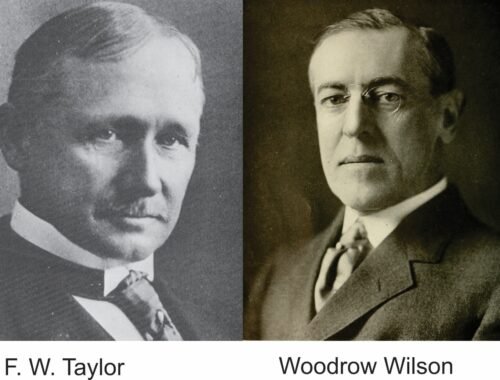
The Virtuous Republic Part 2: What is the Best Form of Government to Secure Truth, Justice, Happiness and Free Society
Abstract: What is the optimal form of government to secure truth, justice, and happiness for citizens? I strongly suspect that the founders of the US Republic read Plato and Roman sources and were familiar with Plato’s concerns about democracy. They echoed many of Plato’s concerns, as well as Roman (Cicero and others), and Enlightenment (Locke, Voltaire, Hume and others) authors in The Federalist Papers. If 21st century people think democracy is better, then they need to explain why and how the current environment overcomes the historical obstacles. The hidden dilemma is we need virtue to fairly assess a virtuous form of government. A virtuous government must teach and nurture virtue.
Has there ever been a successful, virtuous government? People often like to uphold Athens as one. But look at Athens’ conduct during the Peloponnesian War between Athens and Sparta. The government got quite autocratic. If Thucydides’ account of the Melian Dialog is correct, they were quite harsh. When the Melians refused the Athenian demands, the Athenians said, “The strong do what they will and the weak endure what they must.” Again, the Melians refused, and Athens destroyed their civilization. Sparta, which is normally seen as a militaristic dictatorship, may have been a better example of virtue.
Likewise, we can say the same thing about communism. As discussed in Part 1, Marxism/communism is a utopian approach to governance that has never worked because it neglects virtue and the siren call of power. Along the way, it killed over 30 million people. Fascism has a similar record. That leaves socialism and corporatism. Neither of which has been truly tried. However, socialism suffers from the same problems as a communist government and corporatism (see my blog series on corporatism). is perhaps ruled by profit rather than the commonwealth. Not to say that profit is bad, but may be the best organizing principle for a government.
That leaves democracy and republicanism. Or perhaps some form of government we have not invented yet. I’ll leave the not invented form for another forum.
Besides the Athenian democracy, the Greeks also gave us Plato and The Republic. Plato used The Republic to explore justice and happiness. Now justice and happiness are not identical to virtue, but there is an overlap. Plato asserted that the philosopher king was the form of government to ensure justice and happiness. Seemingly within the framework of a republic.
Antonis Coumoundouros, in his article on The Republic for The Internet Encyclopedia of Philosophy, states:
Socrates is now ready to discuss the tyrannical individual (571a). He begins by discussing necessary and unnecessary pleasures and desires (571b-c). Those with balanced souls ruled by reason are able to keep their unnecessary desires from becoming lawless and extreme (571d-572b). The tyrannical individual comes out of the democratic individual when the latter’s unnecessary desires and pleasures become extreme; when he becomes full of Eros or lust (572c-573b). The tyrannical person is mad with lust (573c) and this leads him to seek any means by which to satisfy his desires and to resist anyone who gets in his way (573d-574d). Some tyrannical individuals eventually become actual tyrants (575b-d). Tyrants associate themselves with flatterers and are incapable of friendship (575e-576a). Applying the analogy of the city and the soul, Socrates proceeds to argue that the tyrannical individual is the most unhappy individual (576c ff.). Like the tyrannical city, the tyrannical individual is enslaved (577c-d), least likely to do what he wants (577d-e), poor and unsatisfiable (579e-578a), fearful and full of wailing and lamenting (578a). The individual who becomes an actual tyrant of a city is the unhappiest of all (578b-580a). Socrates concludes this first argument with a ranking of the individuals in terms of happiness: the more just one is the happier (580b-c).
That is a long quote, but I think it helps set the stage along several dimensions: type of government, happiness, tyranny, desires/pleasures. Besides the dimensions in the paragraph, Plato also makes the point on the need for education, critical thinking, censorship, selecting rulers, the correspondence between the individual and the state regarding the four virtues.
One question that Socrates, Plato’s narration, raises is the optimal size of a city to be a republic. This question is just as relevant today as it was when Plato wrote The Republic. The factors are perhaps similar today, but the conditions under which they are assessed. Technology, social media, and other factors affect the assessment. To the size factor, I would add the discussion I had in another blog: can a republic be a superpower (parts 1, 2a, 2b, 3, 4)? Part 4 of that series also addresses another dimension Plato did not consider: finance and debt.
The concept of a superpower and debt was not unknown in Plato’s time. Socrates fought in the Peloponnesian War, which, by the standards of the era, was a major war. Likewise, the Persian invasions of Greece were relevant history for Plato. Alexander the Great was looming on the horizon as well.
When we look at superpower and debt, we need to do a balancing act. How much central power do we need for national security? How much do we owe allies and aligned cultures? The Greeks were successful against the Persians, but failed against the Romans. How much did the life of a Greek change after Rome conquered them? Is it just to bind future generations with the debt of current generations? Does the reason for the debt affect is measures vs. perceived rightness or wrongness? Or is it like the economist John Maynard Keynes, said, “in the long-run we’ll all be dead”?
I strongly suspect that the founders of the US Republic read Plato and Roman sources and were familiar with Plato’s concerns about democracy. They echoed many of Plato’s concerns, as well as Roman (Cicero and others) and Enlightenment (Locke, Voltaire, Hume and others) authors in The Federalist Papers. If 21st century people think democracy is better, then they need to explain why and how the current environment overcomes the historical obstacles to its success.
Part 3 will look at a modified Platonic framework to assess a government’s virtue. The hidden dilemma is we need virtue to fairly assess a virtuous form of government.





One Comment
Pingback: